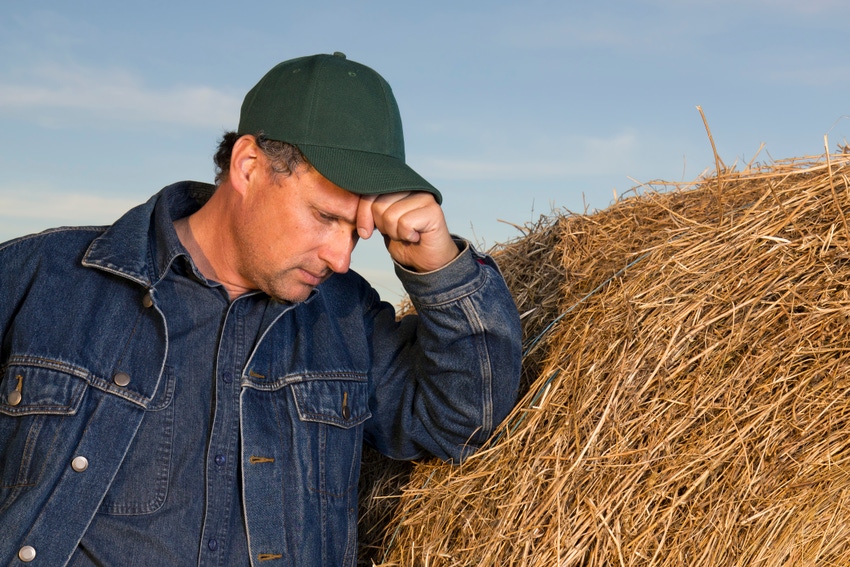
Farming has always been a stressful profession, but stress is even more prevalent when commodity prices are low. Fortunately, there are places farmers can go to for help.
Perhaps what would benefit farmers dealing with stress the most is for them to find an attentive, listening friend to talk to about the challenges of farming, someone who won’t necessarily give advice (giving advice is often the easiest thing in the world to do), but someone who will truly and compassionately listen and offer empathy.
This friend could be a pastor, a fellow famer, a professional counselor or perhaps a non-farming friend. Talking to someone who won’t criticize or advise, but will empathize truly will help alleviate some of the stress. There are also programs in place to help farmers deal with stress.
The newest is a partnership between Farm Credit, the American Farm Bureau Federation and the National Farmers Union to train individuals who interact with farmers and ranchers to recognize signs of stress and to offer help.
The program is based on the farm stress program Michigan State University Extension developed for USDA’s Farm Service Agency. It offers a combination of online and in-person trainings designed specifically for individuals who interact with farmers and ranchers.
The program provides participants the skills to understand the sources of stress, learn the warning signs of stress and suicide, identify effective communication strategies, reduce stigma related to mental health concerns and connect farmers and ranchers with appropriate mental health and other resources.
In a national Morning Consult poll commissioned by AFBF in April 2019, a strong majority of farmers and farmworkers said financial issues (91 percent), farm or business problems (88 percent) and fear of losing the farm (87 percent) impact the mental health of farmers and ranchers, and nearly half of rural adults (48 percent) said they are personally experiencing more mental health challenges than they were a year ago.
Research also shows that while farmers experience higher levels of psychological distress and depression than the general population, they are less likely to seek help for mental health issues. Even for those who do seek help, resources may not be readily available, as 60 percent of rural Americans live in areas with mental health professional shortages.
The initiative by Farm Bureau, the National Farmers Union and Farm Credit will certainly help. Resources may also be accessed on the Farm Crisis Center website managed by the National Farmers Union which is found at farmcrisis.nfu.org.
Finding a true friend who will empathize rather than advise or criticize is something we all need.
About the Author(s)
You May Also Like






